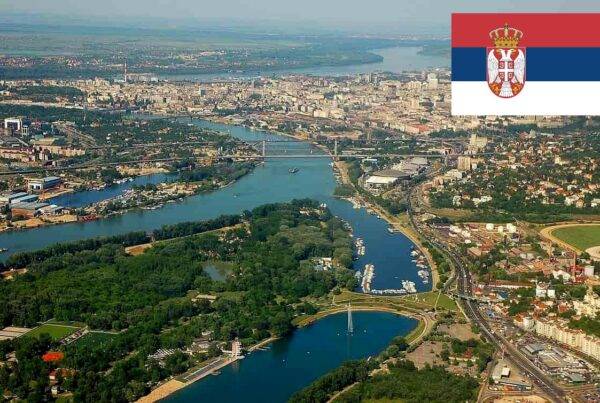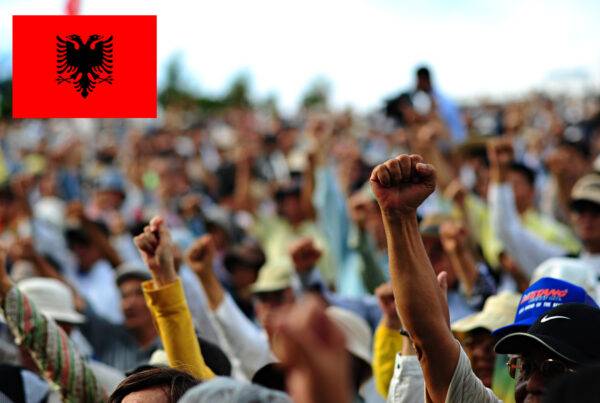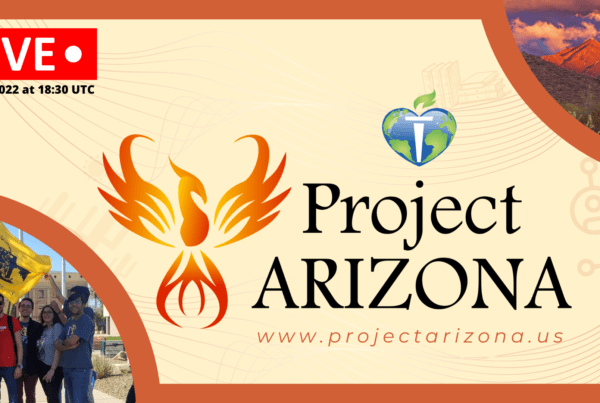By Dr. Kyle Varner
Latin America is a fascinating place with an amazing culture and a political landscape that is ten times more interesting than anything that happens in the United States or Europe. It is also a region with a profound ideological sickness that has caused multiple once-wealthy countries, such as Cuba and Venezuela, and to a lesser extent Argentina, to self-immolate.
Today, Latin America is experiencing a crisis of enormous proportions, and thae extent of the crisis is underappreciated by most observers in the world. Most people know about the crisis in Venezuela–about the six million refugees, the rampant spread of diseases like tuberculosis, measles and malaria and the extrajudicial murders carried out by the criminal regime of Nicolas Maduro.
What many observers don’t know is that while the Maduro regime has received widespread condemnation throughout Latin America, there remain a handful of vocal supporters as well as an enormous number of individuals who refuse to recognize that the collapse and devastation in Venezuela is the inevitable result of revolutionary socialism. Socialism, in short, remains popular as an idea despitethe fact that people all across Latin American see desperate, suffering Venezuelan refugees, in person, on a daily basis.
Why is socialism such a popular idea in Latin America? A variety of historical factors conspire to create a near perfect storm. Spanish colonizers created a rigid class structure that was highly exploitative, and even after independence much of the rigid class structure remained, creating feelings of economic resentment among a large portion of the population. Latin America also experiences a culture phenomena called patrimonialism, whereby the population tends to look for political figures that resemble saviors (think of Simon Bolivar, Eva Peron, Che Guvara, and Hugo Chavez as examples of fervent personality cults that have driven Latin American politics in profoundly destructive ways). Finally, for the last 70 years, socialism has had a state sponsor: Cuba. Not only did Cuba and the Soviet Union fund marxist guerillas in nearly the entirety of Latin America, but they have also spent 70 years in a propaganda campaign, infiltrating schools, universities and the press, and they have advanced a political narrative that is highly favorable to Marxism and highly unfavorable to any type of liberalism.
In the late 1990’s, after the abject failure of the Marxist guerilla strategy, and the near collapse of the Cuban state due to the end of Soviet financial support, Cuban dictator Fidel Castro convened a meeting of Latin American leftists in Sao Paulo, Brazil. This resulted in the creation of the Sao Paulo Forum, a union of leftists committed to a sinister plan: They would lay down their arms and enter politics. They wouldn’t give up their revolutionary socialism–or their desire to bring construct totalitarian dictatorships. They would seize power by means of elections, and with that power they would burn the democratic institutions that brought them to power.
They got very lucky: at the same time as they were beginning their sinister project, the world experienced a commodities boom. Oil, copper, lithium, grains and a host of other commodities soared in price. The result was that left wing politicians could credibly promise to play the role of Santa Clause, without having to subject the population to heavy taxes. The money would
come out of the ground, and no one would have to pay. With commodity revenue, enough popularity could be purchased to amend constitutions, pressure courts, and destroy the institutions that protected liberty and the rule of law across Latin America. Democracy dissolved into dictatorship in Venezuela, Nicaragua and Bolivia. In other places, such as Ecuador and Uruguay, the institutions stood up against the onslaught and democracy wasn’t lost despite the election of profoundly evil men committed to the goals of the Sao Paulo Forum.
Today, the commodity boom has subsided, and socialism has most definitely lost its luster. But the Sao Paulo Forum has held onto its dictatorial victories, and Cuba continues to invest heavily in ideological indoctrination across the region, even though its citizens are starving.
The Cuban State has one particular program that alarms me a great deal: they recruit left-leaning college students from throughout Latin America, and bring them to beach resorts in Cuba, where they’re given a combination of a beach vacation and communist indoctrination session, then sent back home. Cuba is weaponizing young people, training them to undermine democracy, and strengthening revolutionary socialist movements around the world.
The propaganda campaign doesn’t stop there. Just last week, a libertarian student activist in Mexico got this flyer from his professor of political economy. It touts the alleged accomplishments of the Chavez-Maduro regime in providing education, health care, housing and jobs. The source of the data from the flyer? The Bolivarian dictatorship itself.

You might be tempted to think of Latin America as an ideological cesspool that libertarians should avoid. But there’s strong reason for optimism.
There are historical factors in Latin America that also strongly favor liberals. Chile, the wealthiest country in Latin America, was once the poorest country thanks to a socialist named Salvadore Allende. When Allende was deposed, Milton Friedman and a group of his students called “The Chicago Boys” provided economic advice to the new government. The result: Chile’s economy grew rapidly, infant mortality dropped 50% in five years, life expectancy went through the roof and Chile successfully transitioned into a liberal democracy. The Chilean miracle is a powerful example. So powerful, that the Cuban and Soviet propaganda machine convened a special operation called “Operation Toucan” to spread misinformation about it.
But to this day, people from all over Latin America immigrate to Chile, because they know that’s where they have the best opportunity, the best wages, the highest buying power and the highest quality of life.
The crisis in Venezuela provides an opposite example: it has switched places with Chile. What was once the wealthiest country in Latin America is now the poorest, and six million refugees have spread across the region, every one of them a walking testament to the misery, desperation and suffering that is an integral part of socialism.
The liberty movement in Latin America is more energized now than ever before, largely due to the fact that in most Latin American countries, you can’t walk down the street without seeing the obvious victims of socialism with your own eyes, every day.
I’ve been involved in the fight to free Venezuela from socialism since before the death of Hugo Chavez. I’ve gotten to know Venezuelans, both inside and outside of Venezuela who have risked everything, including their lives, to bring freedom and prosperity to their country. I continue to work closely with a clinic for Venezuelan refugees, providing volunteer medical care to Maduro’s victims.
Now, together with other activists from Liberty International, we’re bringing our activism to another level. Together with Glenn Cripe from the Language of Liberty Institute and Movemiento Libertario Colombia, I’ve just completed a five city tour of Colombia. In each city, we delivered a half day seminar on Liberty. Glenn’s talk “Introduction to Classical Liberal Ideas” introduced students to the basic elements of liberal thought and provided an overview of the evolution of liberal ideas from Adam Smith, John Locke, John Stuart Mill, Fredreich Hayek and Ayn Rand. My talk, “La enfermedad mas peligrosa en el mundo y como curarla” draws on my experiences treating patients at the Venezuelan border to show how the consequence of socialism is poverty and death, and that the cure is libertarianism and capitalism, which will bring prosperity, security and well-being anywhere they are implemented. Each event had several local speakers whose contributions completed an amazing educational experience.
In Cucuta, the town on the Venezuelan border where I work as a volunteer physician, we had a particularly remarkable event. Thanks to the generosity of many Liberty International donors, we were able to bring 21 activists from within Venezuela to join us for a full day seminar and dinner. Many of these brave young people have been arrested, beaten and threatened by the regime, but they are fearless, they are principled, and they’re eager to learn. An additional 20 students from Colombia joined us for this event!
We have more big plans for Latin America: In Colombia, I am working on plans to return and visit several cities to discuss the impact of drug prohibition on Latin America. We’re also working on plans to hold two Liberty Camp events in Colombia. These events will be five day events held in the countryside, that include a strong libertarian curriculum delivered in lecture format each day, discussion of key libertarian ideas, and lots of opportunities to build friendships around the campfire. We are also working on plans for a seven city tour of Mexico, followed by two liberty camps there (one in English for those students who have sufficient levels of English, and one in Spanish for those who do not). We’re actively working to develop local partnerships in other Latin American countries to bring our programs there, and have identified potential partners in Honduras, Ecuador, Panama, Chile, Argentina, Costa Rica and Bolivia.
The Cuban dictatorship does the exact opposite of what we are doing: They bring left-leaning (misguided) students to Havana and poison their minds with bad ideas, sending them home
where their activism will erode the security and prosperity of their countries. We’re reaching out to promising students who have an interest in liberty, we’re cultivating that interest, providing high-quality education and inspiration, and sending them home with the ideas and tools they need to help make their home countries more peaceful, secure and prosperous.
Latin America has a cancer. It started in Cuba, it metastasized to Venezuela, Bolivia, and Nicaragua. It is spreading in Mexico and Argentina. But we have the cure! The only cure for this cancer is education with good ideas. We’ve got the ideas, and we’re bringing them where they’re needed most



